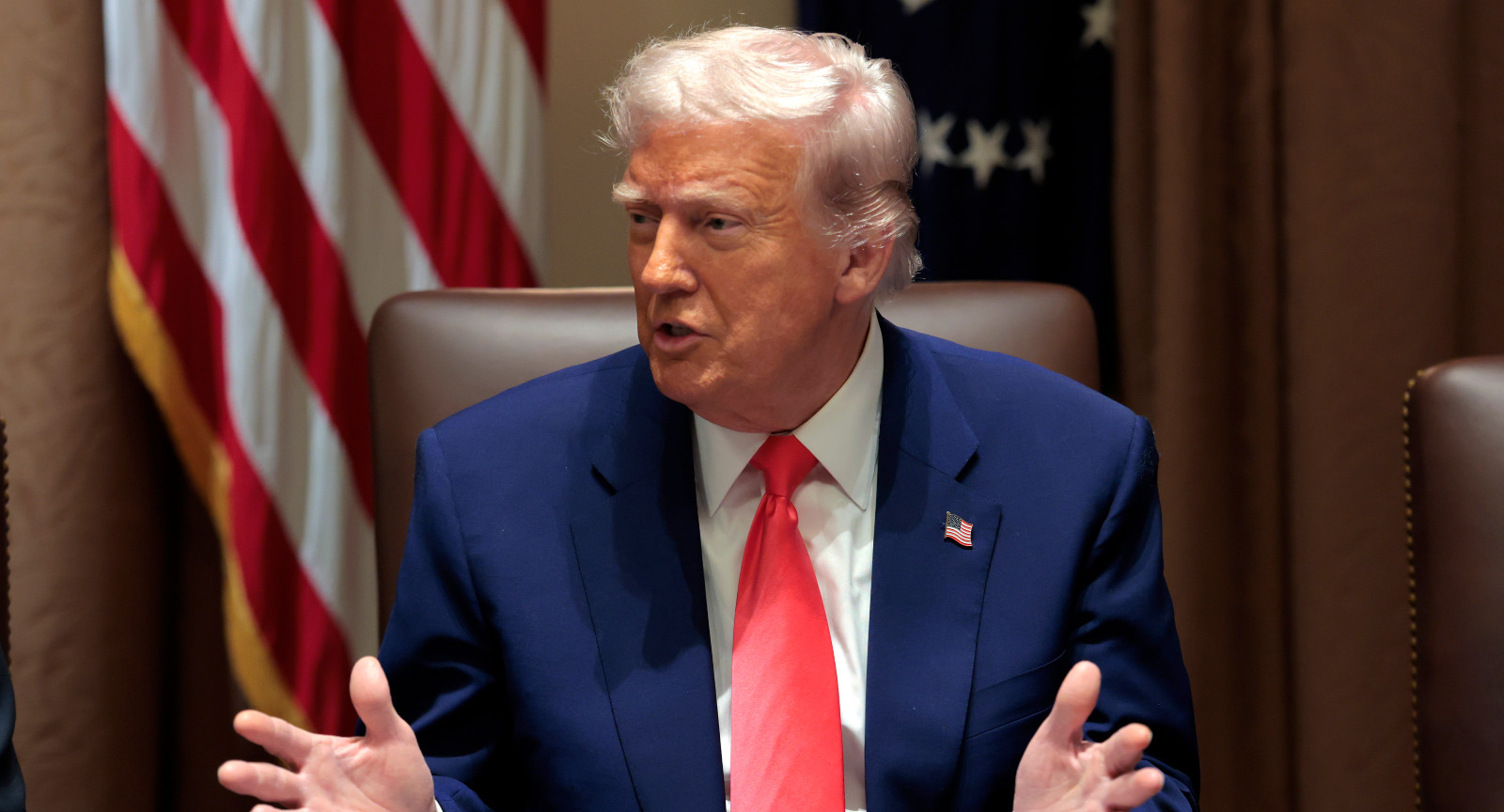Federal Leadership Upheaval: IRS Commissioner Resigns Amid Data-Sharing Controversy
High-Level Departure Signals Deepening Tensions Over Privacy Rights and Government Restructuring
The federal government’s administrative landscape has undergone significant turbulence in recent months, with the resignation of Internal Revenue Service Acting Commissioner Melanie Krause marking the latest in a series of high-profile departures from critical government positions. This development has intensified scrutiny of the current administration’s approach to federal agency management and raised substantial questions about the balance between operational efficiency and constitutional protections.
The resignation comes amid a complex web of policy disputes, legal challenges, and organizational restructuring efforts that have fundamentally altered the operational dynamics within several key federal departments. At the center of these developments lies a controversial data-sharing agreement between the IRS and the Department of Homeland Security, which has generated significant opposition from privacy advocates, legal experts, and career government officials.
Pattern of Leadership Changes Raises Institutional Concerns
The departure of Acting Commissioner Krause represents the third significant leadership change within the IRS in a relatively short timeframe, suggesting a pattern of instability that extends beyond individual career decisions. This succession of resignations has created a leadership vacuum at a critical juncture when the agency faces mounting pressure to implement new policies while maintaining its core mission of tax collection and enforcement.
Doug O’Donnell, who served as acting commissioner before Krause, departed earlier this year following his refusal to endorse the controversial data-sharing arrangement with DHS. Sources familiar with the situation indicated that O’Donnell’s opposition to the agreement stemmed from concerns about legal compliance and the potential violation of established taxpayer privacy protections.
The pattern of resignations traces back to the beginning of the current administration, when Danny Werfel, the last Senate-confirmed IRS commissioner, chose to resign on the first day of President Trump’s second term. Werfel’s departure was widely interpreted as a signal of the fundamental policy disagreements that would characterize the relationship between career officials and political appointees in the new administration.
These successive departures have created an unprecedented situation where the IRS has operated without stable, long-term leadership for an extended period. This instability has implications not only for the agency’s day-to-day operations but also for its ability to maintain institutional knowledge and implement complex policy initiatives effectively.
The Data-Sharing Controversy: Privacy Versus Enforcement
The controversial agreement between the IRS and DHS represents a significant shift in how federal agencies approach the sharing of sensitive taxpayer information. The arrangement, which allows immigration enforcement authorities to access private tax data, has been framed by supporters as a necessary tool for locating undocumented immigrants and enhancing national security efforts.
However, critics argue that the agreement fundamentally undermines decades of established legal precedent regarding taxpayer privacy and confidentiality. The Internal Revenue Code contains strict provisions governing the use and disclosure of taxpayer information, reflecting a long-standing principle that individuals should be able to fulfill their tax obligations without fear that their personal financial information will be used for unrelated government purposes.
Legal experts have raised significant concerns about the constitutional implications of the data-sharing arrangement. The agreement appears to bypass traditional legal safeguards that require specific authorization or court orders for the disclosure of taxpayer information to other government agencies. This departure from established protocols has generated warnings from civil liberties organizations and former government officials about the potential for abuse and the erosion of constitutional protections.
According to sources familiar with the internal deliberations, Acting Commissioner Krause was systematically excluded from key meetings and negotiations related to the data-sharing agreement. Treasury Department officials, who have oversight authority over the IRS, reportedly advanced the agreement despite knowing that Krause harbored serious reservations about its legal and ethical implications.
The circumvention of the IRS’s leadership in these discussions represents a departure from traditional interagency coordination practices and suggests a broader pattern of political appointees overriding the concerns of career officials. This dynamic has created tensions not only within the IRS but also between the agency and its oversight bodies within the Treasury Department.
Legal Framework and Constitutional Challenges
The legal foundation underlying the data-sharing agreement has become a subject of intense scrutiny among constitutional scholars and privacy advocates. Federal law governing taxpayer information disclosure includes specific provisions designed to protect individual privacy rights while allowing for limited exceptions in cases involving national security or law enforcement.
The Internal Revenue Code establishes a comprehensive framework for the protection of taxpayer information, including strict penalties for unauthorized disclosure and specific procedures for lawful information sharing. Legal experts have questioned whether the current data-sharing arrangement complies with these statutory requirements, particularly given the broad scope of information access it appears to authorize.
Internal legal advisors within both the IRS and Treasury Department reportedly raised concerns about the agreement’s compliance with existing federal statutes. These warnings, according to sources familiar with the discussions, were ultimately overruled by political appointees who prioritized the administration’s immigration enforcement objectives over legal compliance concerns.
The legal challenges to the data-sharing arrangement extend beyond statutory interpretation to include fundamental constitutional questions about the separation of powers and the limits of executive authority. Constitutional scholars have argued that the agreement represents an attempt to circumvent congressional oversight and judicial review processes that are essential components of the checks and balances system.
Workforce Restructuring and the DOGE Initiative
The resignation of Acting Commissioner Krause has coincided with a broader restructuring initiative affecting the entire federal workforce. This effort, led by the newly created Department of Government Efficiency (DOGE) under the direction of tech entrepreneur Elon Musk, has resulted in significant personnel reductions across multiple federal agencies.
The IRS has been particularly affected by these workforce reductions, with the agency implementing cuts that include the elimination of its civil rights office and projected reductions of up to 25% of its total workforce. These cuts have been characterized by administration officials as necessary measures to eliminate bureaucratic inefficiency and reduce government spending.
However, critics argue that the workforce reductions are being implemented without adequate consideration of their impact on the agency’s core mission and responsibilities. The elimination of the civil rights office, in particular, has drawn criticism from civil rights organizations and former government officials who argue that this function is essential to ensuring equal treatment under federal tax law.
The broader DOGE initiative represents an unprecedented approach to federal workforce management, with a private sector executive wielding significant authority over government operations. This arrangement has raised questions about the appropriate role of private citizens in government decision-making and the potential for conflicts of interest.
Revelations About Financial Management Systems
Elon Musk’s role as head of DOGE has provided him with unprecedented access to federal financial management systems, leading to revelations that have shocked both government officials and outside observers. In a recent public discussion, Musk described discovering what he termed “magic money computers” within various federal departments—systems that allegedly authorize and process payments without standard auditing or documentation procedures.
According to Musk’s account, these systems are primarily located within the Treasury Department but have also been identified in other agencies including Health and Human Services, the State Department, and the Department of Defense. The existence of these systems, if accurate, suggests significant deficiencies in federal financial management and oversight.
Musk’s claims indicate that these systems may be responsible for billions or potentially trillions of dollars in unexplained or inadequately documented government spending. He has suggested that the existence of these systems means that elected officials, including members of Congress, may be operating with incomplete or inaccurate information when making budget decisions and conducting oversight activities.
The implications of these revelations extend beyond financial management to include questions about transparency, accountability, and the effectiveness of existing oversight mechanisms. If Musk’s characterization is accurate, it suggests that fundamental reforms may be necessary to ensure proper stewardship of taxpayer funds.
Impact on Congressional Oversight and Budget Process
The revelations about financial management systems have significant implications for congressional oversight and the federal budget process. Senator Ted Cruz, in his discussion with Musk, speculated that discrepancies in government spending could account for up to 5% of annual federal expenditures—a margin large enough to significantly influence policy debates and funding decisions.
This level of financial uncertainty undermines the ability of Congress to fulfill its constitutional responsibility for government oversight and appropriations. If substantial portions of federal spending are occurring through systems that lack adequate documentation and oversight, it calls into question the effectiveness of existing budget processes and accountability mechanisms.
The situation also raises concerns about the accuracy of financial information provided to Congress and the public. Budget documents and financial reports that do not capture the full scope of government spending cannot provide the transparency necessary for effective democratic governance and public accountability.
Institutional Stability and Public Trust
The combination of leadership departures, controversial policy implementations, and revelations about financial management has created a crisis of institutional stability within the federal government. The IRS, as one of the most visible and important federal agencies, plays a critical role in maintaining public trust in government operations.
The agency’s ability to fulfill its core mission of tax collection and enforcement depends heavily on public confidence in its fairness, competence, and integrity. The current controversies threaten to undermine this confidence and could have long-term implications for tax compliance and revenue collection.
The politicization of taxpayer data through the data-sharing agreement represents a particularly significant threat to public trust. The principle that taxpayer information will be used only for tax-related purposes has been a cornerstone of the voluntary compliance system that underlies federal tax collection. Any erosion of this principle could have far-reaching consequences for the government’s ability to collect revenue effectively.
Broader Implications for Federal Governance
The events surrounding the IRS leadership changes and related controversies reflect broader tensions about the appropriate balance between political control and administrative independence within the federal government. Career officials like Acting Commissioner Krause represent institutional knowledge and continuity that are essential for effective government operations.
The systematic exclusion of career officials from key policy decisions, as reportedly occurred with the data-sharing agreement, represents a departure from traditional governance practices that have historically balanced political direction with professional expertise. This shift could have long-term implications for the quality and effectiveness of government operations.
The role of private sector executives like Elon Musk in government decision-making also represents a significant departure from traditional approaches to public administration. While private sector expertise can provide valuable insights, the integration of private sector methods and perspectives into government operations raises questions about accountability, transparency, and the appropriate boundaries between public and private authority.
Looking Forward: Challenges and Opportunities
The current situation presents both significant challenges and potential opportunities for federal governance. The revelations about financial management systems, if accurate, provide an opportunity to implement fundamental reforms that could improve transparency and accountability in government operations.
However, the manner in which these reforms are being implemented—through mass workforce reductions and the circumvention of traditional oversight mechanisms—risks creating more problems than it solves. Effective government reform requires careful planning, stakeholder engagement, and respect for existing legal and constitutional frameworks.
The leadership vacuum at the IRS and other federal agencies also presents an opportunity to recruit new leaders who can bridge the gap between political objectives and operational effectiveness. However, this will require a commitment to recruiting qualified individuals who can command respect from both political appointees and career officials.
Conclusion: The Need for Balanced Reform
The resignation of Acting Commissioner Krause and the related controversies surrounding federal agency operations highlight the need for thoughtful, balanced approaches to government reform. While there may be legitimate concerns about government efficiency and effectiveness, addressing these concerns requires careful attention to legal requirements, constitutional principles, and the need to maintain public trust.
The current approach, characterized by sudden leadership changes, controversial policy implementations, and mass workforce reductions, risks undermining the very objectives it seeks to achieve. Effective government reform requires building consensus, respecting institutional knowledge, and maintaining the checks and balances that are essential to democratic governance.
As these developments continue to unfold, it will be important for all stakeholders—including Congress, the media, and the public—to maintain vigilant oversight and to demand transparency and accountability from government officials at all levels. The stakes are too high, and the potential consequences too significant, to allow these issues to proceed without careful scrutiny and thoughtful consideration of their long-term implications for American democracy and governance.
The path forward will require finding ways to balance the legitimate need for government efficiency and effectiveness with the equally important need to maintain constitutional protections, institutional stability, and public trust. This balance is essential not only for the immediate challenges facing federal agencies but also for the long-term health of American democratic institutions.






